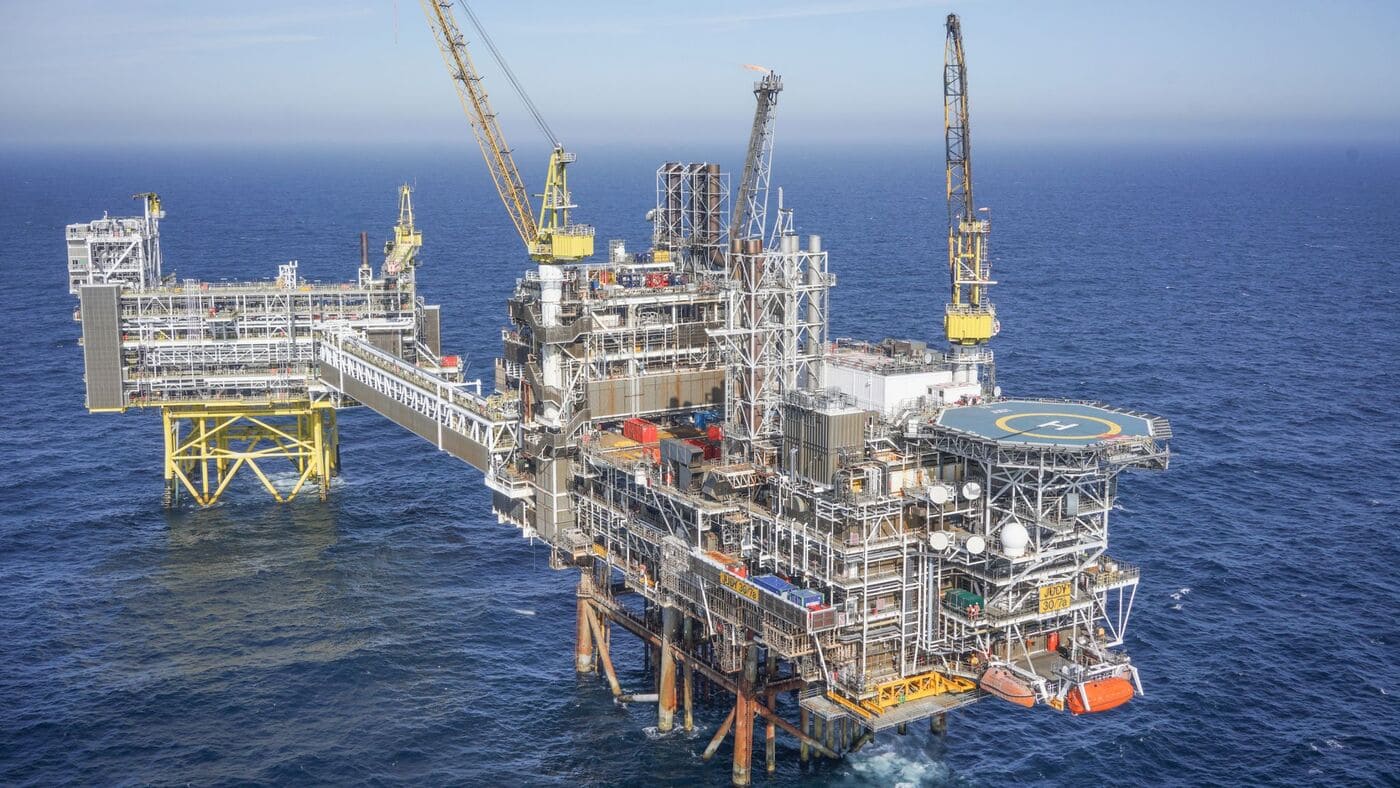Once again, the controversy over the British oil fields in the North Sea, which is awaiting a new licensing round for oil and gas exploration after it stopped in 2020, is back.
Offshore Energy UK, which represents Britain’s offshore oil and gas industry, revealed a shocking revelation about 10 British oil fields in the North Sea that are close to finally winning government approvals to start drilling.
And the Director of the British Authority, Ross Dornan, said – during an industrial event in the city of Aberdeen on Tuesday (March 28, 2023) – that these fields were discovered – on average – 3 decades ago, according to a report published by the “Energy Voice” platform. ), and was reviewed by the specialized energy platform.
Dornan added, “If it was really difficult projects in the past, it will be even more difficult now,” attributing the official to several main reasons, including fading investor confidence, taxes imposed on the industry, and general inflation pressures.
British oil fields
Exploration of British oil fields in the North Sea faces doubts about the potential of the reserves there; Environmental advocates say the region has reached maturity because of its overexploitation.
Fossil fuel production in the North Sea is declining by about 5% annually, according to estimates from the UK’s Maritime Energies Authority.
However, the authority confirmed that 15 billion barrels of oil and gas are still present in the subsoil of the North Sea, while the UK’s consumption is about one billion barrels annually.
The Offshore Energy UK report included a list of 7 oil and gas exploration projects in the North Sea that are still awaiting environmental permits to obtain government approvals.
Among them was the project by Harbor Energy – the largest oil and gas producer in the North Sea – in the Talbot field with reserves of up to 18 million barrels, which recently received the green light from regulators.
The project is due to start production at the end of next year 2024, and Dornan described it as a “really positive” example of North Sea companies overcoming the challenges of unlocking resources there.
Huge challenges
Despite all the efforts, many of these ambitious projects are still pending, according to the report, as the current market conditions make achieving them on the ground a difficult task.
Introducing Offshore Energy UK’s latest business outlook report, Dornan said: “There are huge challenges and negative consequences for the future of investments.”
“But with the right conditions, it will be possible to make progress and unleash resources,” he added.
The authority notes that the plans of oil and gas companies in the North Sea include reserves estimated at 6 billion barrels, but the dream of 500 million barrels of oil has faded, as a result of the lack of confidence in those companies, which pushes them to “back down from investment and production plans.”
Despite concerns about companies looking to spend their money abroad, Norway’s Equinor confirmed that the North Sea remains its main business area.
We’ve been here for 40 years. We continue to see the UK as a key country for energy investors,” said Arn Gorter, Equinor’s UK Vice President, Arn Gorter.
“It doesn’t work without challenges or struggles. I don’t have to tell you that, but there is a huge opportunity,” he said.
Exceptional tax crisis
The negative sentiment for companies operating in the North Sea basin comes mainly from government taxes on the profits of oil and gas companies, which have been doubled by the British government.
At the end of May 2022, the government announced the imposition of exceptional taxes on the profits of British oil and gas companies, such as BP and Shell, which benefited from rising prices globally, according to the Russian war in Ukraine.
The UK’s main producer tax rate was raised in the autumn budget to 75%, and a provision that would have led to the removal of that tax if energy prices fell had been removed.
On Friday, the government is expected to announce some changes to the energy dividend tax, to contain concerns about the UK’s ability to attract investment.
related topics..
Also read..

Leave a Reply